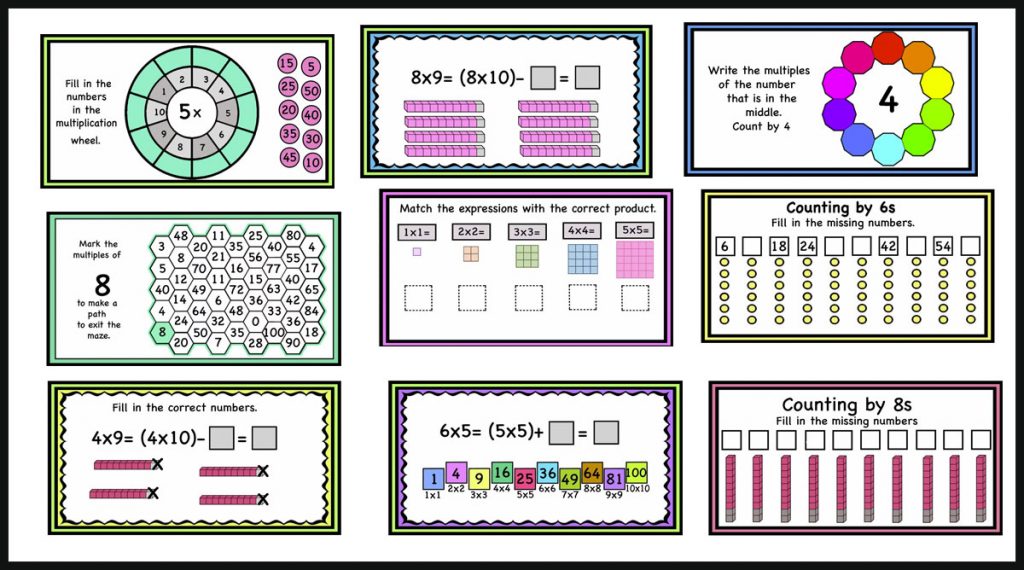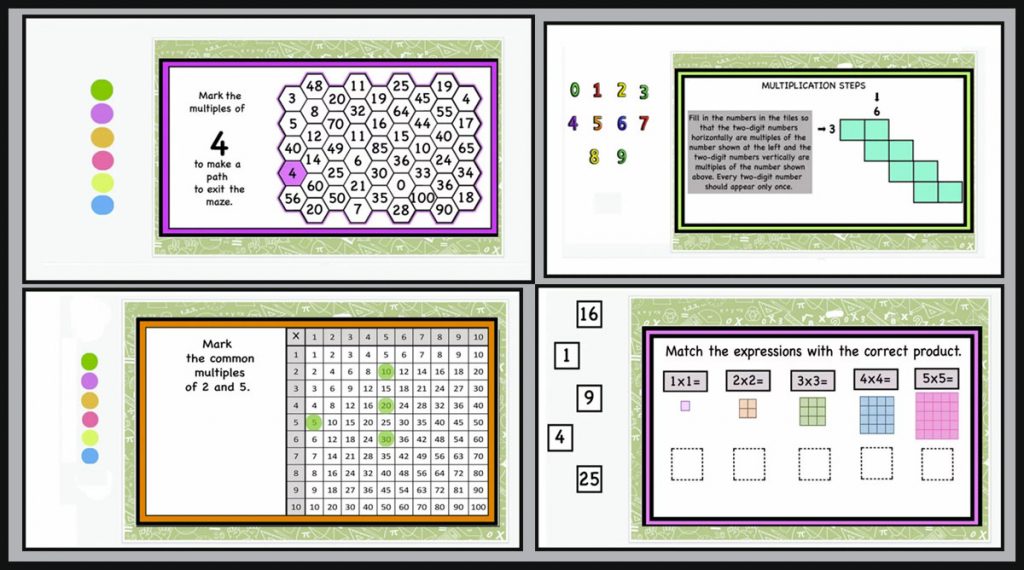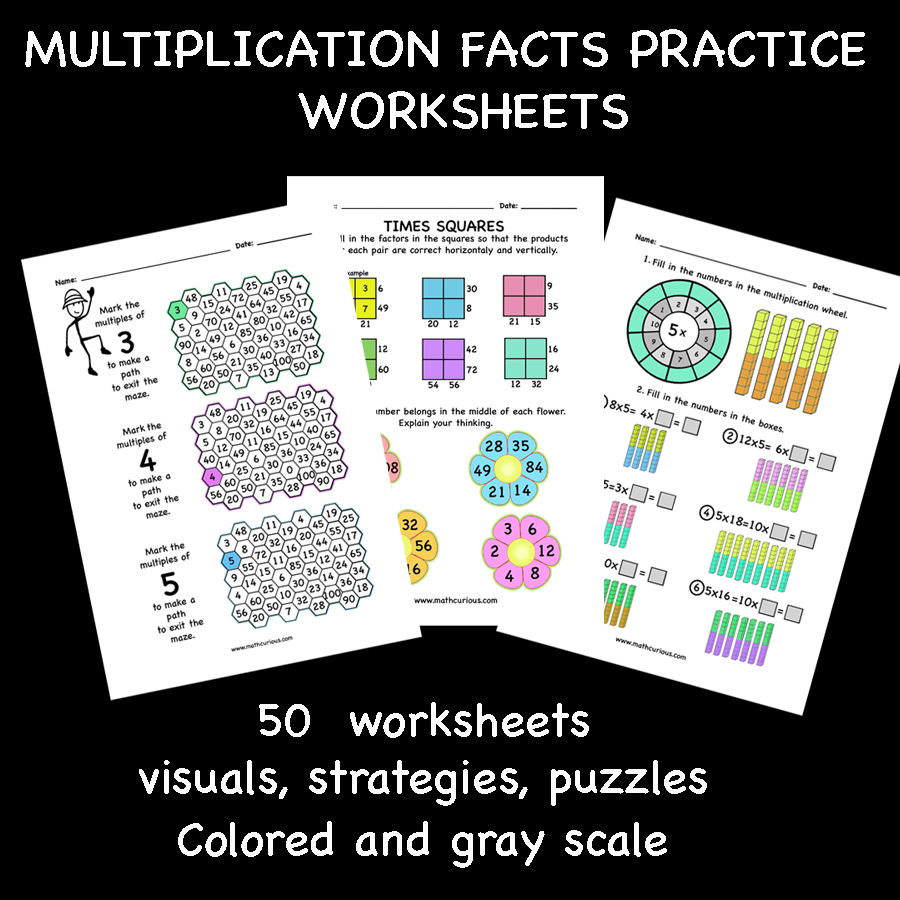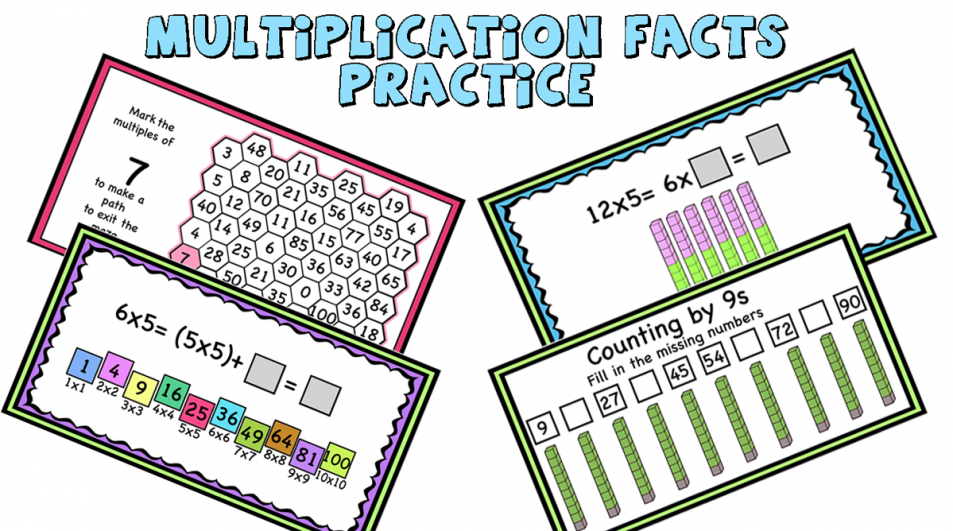As we all know multiplication facts fluency is very important as it is the base for many concepts like multi-digit multiplication, equivalent fractions, division, and, much more. Therefore, multiplication facts practice deserves time and effort. Rushing into drills that promote meaningless memorization with endless repetition will not help in the long run. Allow students to take their time and practice solving problems until they start memorizing without even realizing it. A great way to do that is by teaching mental strategies, by “playing” with the multiplication table to find patterns and relations, and by initiating meaningful math talks.
Of course, the practice of multiplication facts comes after students have gained a deep understanding of multiplication and its properties. The best way to start with multiplication is to model it as repeated addition with arrays. Find some activities here.
When your students are ready to practice the multiplication facts and gain automaticity you can use activities that promote fluency and develop confidence in math. I have created a collection of activity cards (printable and digital) that I use with my students to practice the multiplication facts. There are many types of cards as you will see. Most are low-floor high ceiling activities that are done on the multiplication table itself (As you might know by now from the games I have designed I am a big fan of the multiplication table). Others include visuals that help the students find strategies that can help them reach the answer quickly. Some cards practice one table at a time by focusing on the multiples or the factors of a specific number. For the students that need a challenge and are ready to move to the next level, I have added some challenging puzzles and mazes type of activities as well.
How to use the cards
There are 150 printable cards in the premium package. The cards can be used in many ways based on the level and the teaching goals. I suggest that you start with the ones that include visuals and present strategies and then practice one table at a time. Continue with the ones that include a multiplication table in order to find relations, patterns, and stepping stones. Allow students to use manipulatives including the multiplication table when they need to. Working in pairs allows students to share strategies or “tricks”.
Laminate the cards so that the students can try different solutions and feel more comfortable about making mistakes. This is what I love about task-cards. I often call then thinking cards, because their goal is to get you thinking, talking, and solving.
I have put all the digital cards in one google-slides presentation for convenience, however, there are quite a lot and different types of activities. I suggest that after you make a copy of the presentation, you use it to create different smaller activities based on level and teaching goals. For example, one presentation can include all the cards for the trick of x9, another one can practice the table of 7, and so on.
I use these cards for visual help, warm-ups, group work, informal individual assessment, enrichment for early finishers or advanced learners (the numbers steps cards are great for this) treasure hunts, and puzzles.
Print activity cards

Google slides activities

Find the free and premium version of the activity cards below.
The premium version includes 150 print activity cards and 60 digital ones.

The worksheets version of the resource was just added, find it here. Find the bundle with both the versions here

